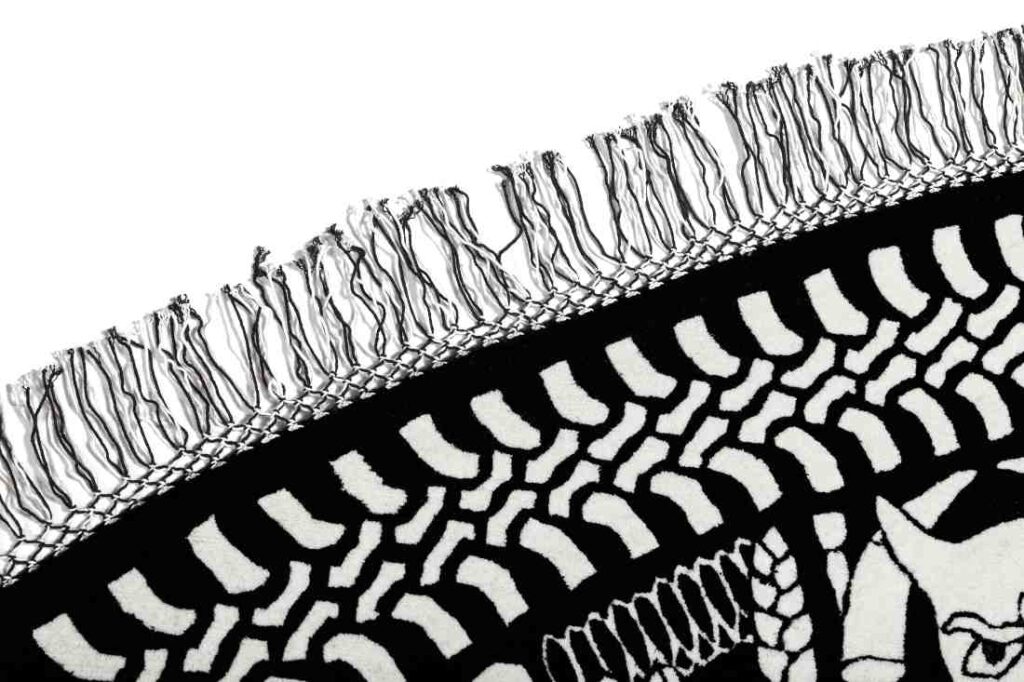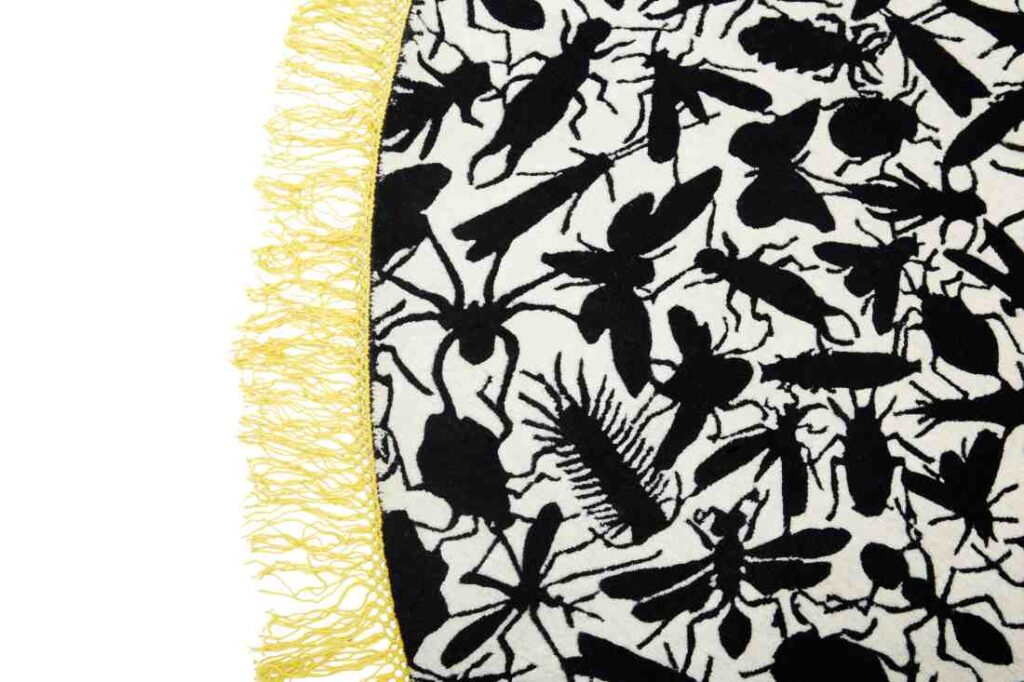Rugs with fringes: how to make the best choice?
Design — Materials and techniques — Aug 06.2022
Rugs with fringes are among the most traditional designs. The fringe is an element that forms part of the structure of the rug and has considerable decorative capacity. It can even be a detail that determines the success of an interior design project.
In this article, you will find out everything you need to know about manufactured fringes and how to make the most of this type of carpet so that it can become the highlight of the interior design of a room.
What are fringes and what types of carpet do they occur in?
One is quick to say Rugs with fringes. But what are they? Let us understand it properly. Let us first say that fringes are found at opposite ends of the carpet. In rectangular patterns, they are usually along the short side, but they can also be found in round carpets, around the entire perimeter of the pattern.
More technically, the fringes are the ends of the warp of the carpet, i.e. the ‘skeleton’ around which the yarn is fixed and which represents the visible part of the product.
Fringes are a special feature found in knotted or hand-woven carpets. In both cases, the warp threads are attached vertically to a loom and, on them, the weavers or knitters work to compose the design of the carpet.
If we look at a carpet and see the fringes, therefore, we can deduce that it is a hand-knotted carpet. This is true for all luxury carpets and medium-high quality models, but may not be true if it is a low quality carpet. In machine-knotted models, fringes are sometimes applied at the end of the manufacturing process by gluing or sewing them to the main body of the carpet.
In carpets where the fringes are not visible, the ends are called selvedge. In this case, the end of the warp is cut and knotted so that it is invisible.
Various materials can be used for the warp of the carpet – and thus for the fringes. The most common are cotton and wool, but there are carpets with silk, jute or linen warps. Naturally, the material used influences how the fringes will look and determines their strength and delicacy. Consequently, it is important to know this information, which seems unimportant and yet is also useful when choosing the most suitable Rugs with fringes for your project.
How can you furnish with a fringed carpet?
In most cases, when dealing with Rugs with fringes, we are dealing with Oriental, antique or contemporary artefacts. Fringes are in fact one of the constituent elements of traditional carpets from the Persian area and Asian countries in general.
Even in contemporary art carpets, fringes may be present, more or less long depending on the designer’s choices and the type of artefact.
When they are visible, fringes become a detail to be emphasised, also because of their ability to warm the atmosphere and give it an enveloping and classic look.
A fringed carpet can furnish any room in the home, provided that the fringes are easily visible and are not hidden by furniture or accessories.
Rugs with fringes, whether oriental or designer, can therefore be found in the bedroom, living room or lounge, but also in hallways, for example in the form of runners, and on the terrace.

How to care for a fringed carpet?
When choosing to furnish a fringed carpet, great care must be taken in its care. The warp ends tend to collect more dust and dirt than the pile of the carpet, which is more compact. Moreover, since the fibres are frayed, they are the most delicate part of the artefact and the one at greatest risk of wear and tear.
It is easy to see that the risk of the fringes becoming damaged is higher if the carpet is in a busy part of the house or if there are children or animals in the house.
With this in mind, adopting a cleaning routine and taking proper care of the carpet can help to preserve the quality of the carpet over time and reduce the risk of the fringes becoming dirty, stained or even torn.
To respect the delicacy of the fibres, especially in carpets made of silk or fine wools, vacuuming this part of the carpet should be avoided. In the case of stains or surface dirt, a mild detergent or a special carpet cleaning product can be used. On the other hand, aggressive chemicals should always be avoided, as they can deteriorate the fibres and, in extreme cases, cause knots to unravel. The latter can irreparably damage even the strongest Rugs with fringes.

